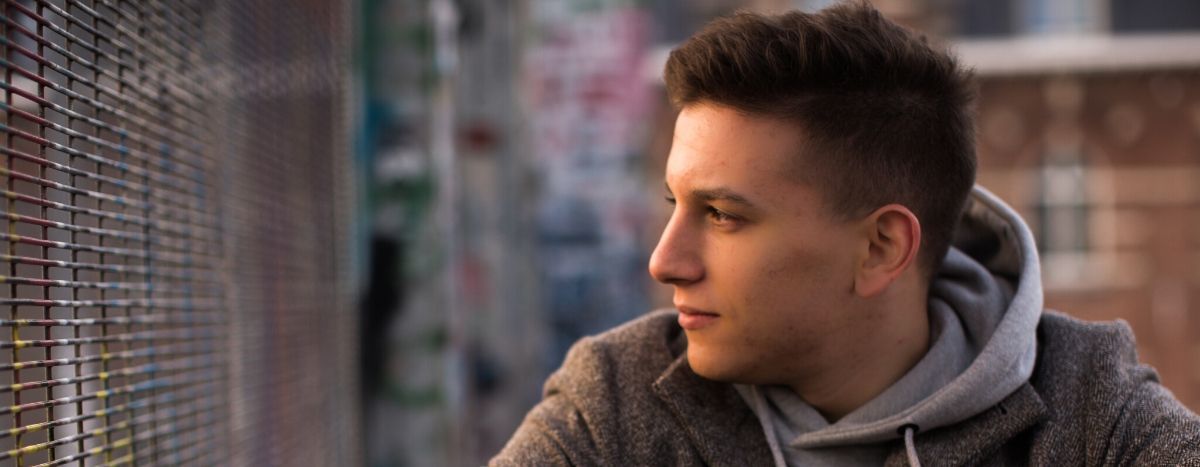
In Brussels, street photography is standing the test of the lockdown
Published on
Translation by:
Kate GallagherOver the last two years, information technology consultant Mehdi has been spending half his time photographing the streets of Brussels. But since coronavirus made its appearance on these same streets, he has had to adapt and find other ways of practising his passion. In this interview, he shares his insights.
Tell us about yourself. Who are you, what do you do?
My name is Mehdi El Taghdouini, I'm 26 years old. I’m an information technology consultant, and I practice street photography on the side. I started doing it two years ago, just after I finished my studies. I impulse-bought a camera and since then I have been completely obsessed with photography. It wasn't supposed to be more than a hobby, but now it is, and I hope to make something more concrete out of it.
Do you want to become professional?
At first it was just a hobby that allowed me to stay stimulated. During the first few months when I started, I wasn’t working. I was only doing photography, so I progressed quickly. I was actually surprised by my progress! I compared myself with other professional photographers and began to think that it could become something more. Then I started getting media attention, and it all made me think that maybe there was a possibility of becoming professional. Before the lockdown, I was supposed to exhibit my photos in two non-commercial exhibition spaces in Brussels, but everything was cancelled. I hope to reorganise that after the lockdown has ended.
Why street photography?
I've always loved my city and walking through its streets, so it came from a desire to do something good for Brussels and to see it in a new light. And then it encompasses everything that I love doing - being outside, walking, meeting new people. I was also keen to not let my surroundings pass me by. When I’d finished studying, I didn’t want to just go to work, come home at night and do nothing else. I wanted to understand what was going on in the outside world and to know my city.
I’m both introverted and extroverted. Street photography meets that need for solitary activity, whilst at the same time being surrounded by people, and feeling that I am in an animated area. I love that lively, big city vibe, with all its sounds and sights. I like observing people and everyday life. I prefer to capture life's essence and its absolute authenticity. Also, I don't like to influence a scene. I keep my distance so that the photo isn't ruined by my presence.
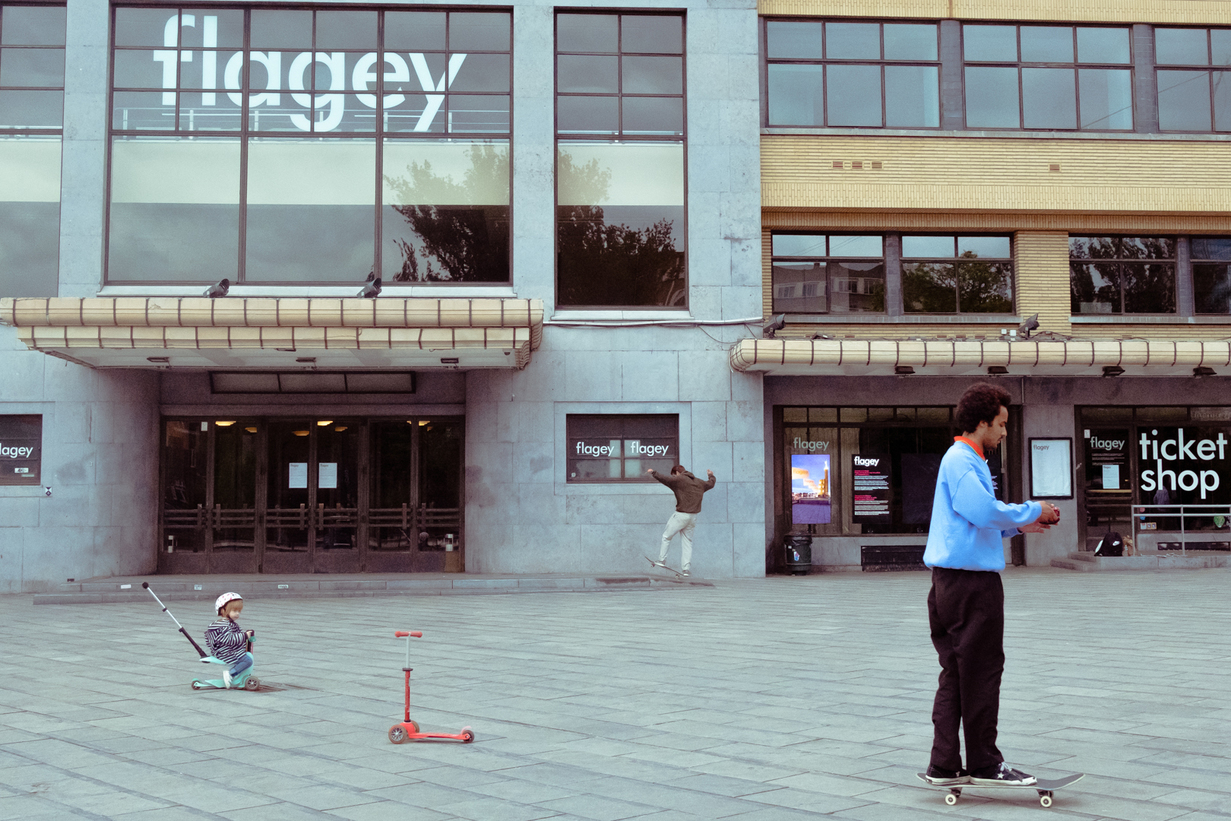
What are your usual playgrounds?
It's evolved a lot over time. When I started doing photography, I looked for places that were easy to photograph, mainly the city centre of Brussels. As it is full of people and tourists, having a big camera in those areas doesn't shock anyone, you can point it in any direction. I did this for some time, and after a while I wanted to start capturing Brussels life more authentically. I wanted to do more difficult things. So I started to get out of the city centre, I went to the European quarter, Flagey, Saint-Gilles, Etterbeek. Before the lockdown, I also started trying to go to more residential neighbourhoods, where it's more difficult to take pictures. Because in the collective subconscious there isn’t anything to photograph there. Straightaway, I attracted attention and questions. But I want my playground to be Brussels with all these faces, so I didn't just want to stay in the city centre, the Manneken-Pis and the Grand Place.
Have you been continuing to take photos since the beginning of lockdown in mid-March?
I live in Jette, a northern suburb, so I recently started taking photos on my street. And I realised that if you want to take photos in residential areas, you need a different approach. You have to interact with people, explain things to them, you have to do more portraits. Inform, rather than improvise. It's another style of photography. And even with the best approach, there are always people who don’t want to be photographed, regardless of the location.
In any case, it allowed me to realise that there were flaws in my presentation of what I was doing. At first, I was trying to approach people the same way as in the centre by taking photos without warning, and I had some tough altercations with people who saw me doing it and thought I had bad intentions. When I changed my approach, I realised that I couldn't explain to them what I wanted to do. If I was hesitant, people didn't necessarily believe me... It was something I had to learn to do. I literally started rehearsing my pitch in front of the mirror!
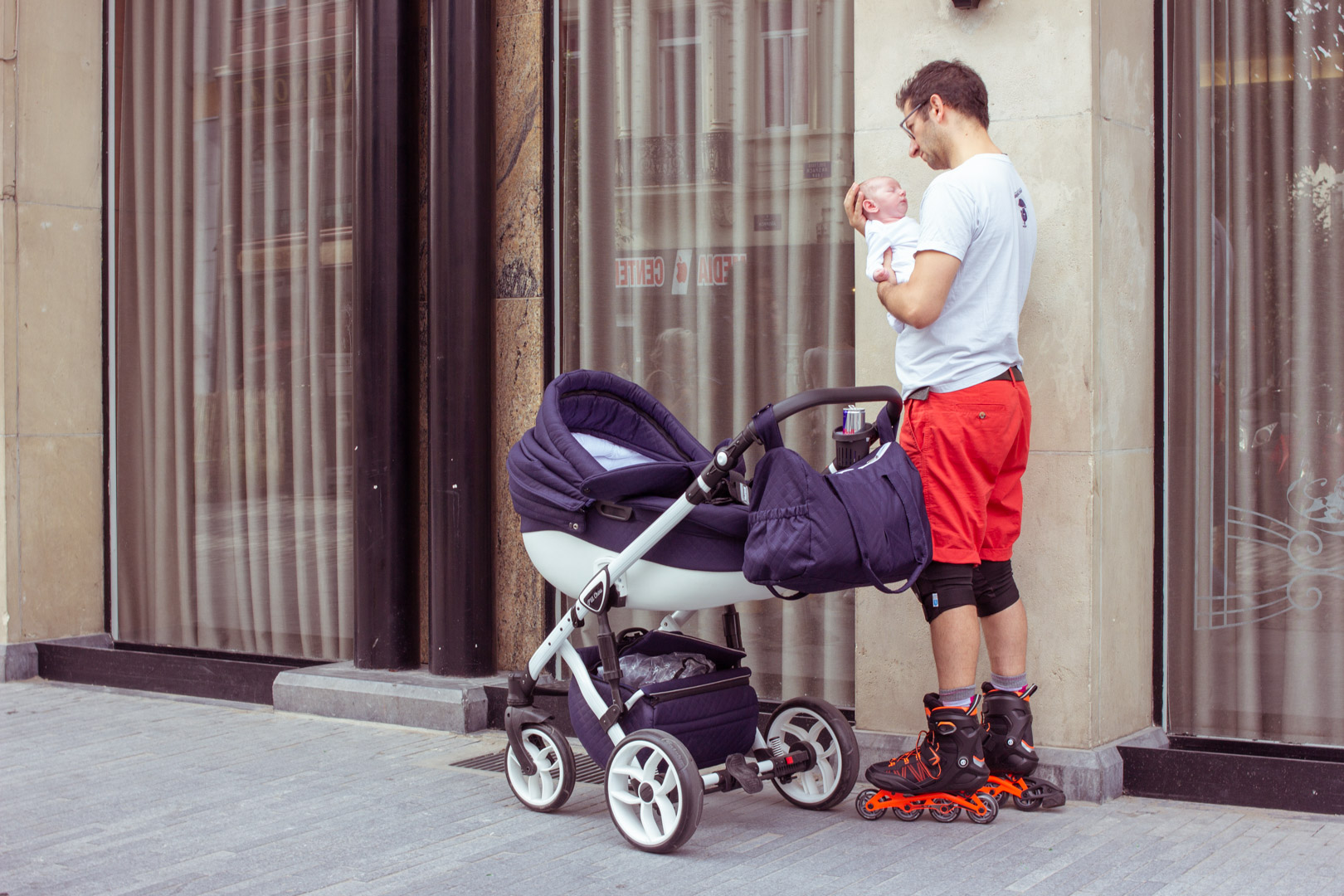
How do you manage to maintain that human element in your photos during this time?
It's difficult to get people in the photos when the streets are empty, so I take pictures without them, but it's rare. I like to have a human presence, explicit or implicit. It's difficult and I'm trying to get to the few places there are still lively, like parks. But I take a lot less pictures, that's for sure.
It's like there's an acceptance that the situation is abnormal anyway. And that taking photos of people in masks just happens.
What's strange, too, is that people know we're in an exceptional situation. I took pictures at least a metre away from some people and they didn't react, whereas usually they would have. It's like there's an acceptance that the situation is abnormal anyway. And that taking photos of people in masks just happens.
Have you felt the need to immortalise this strange situation and a desire to take photos of empty streets, people in masks, the queues at the supermarket…?
As a rule, I try to work as intuitively as possible. I don't plan my day; it's very spontaneous. I also sometimes have a more documentary side where I try to chronicle events. For example, two years ago when there were the gilets jaunes protests, I was really going there to photograph that. But in the case of the lockdown, I go outside telling myself that I will react spontaneously to whatever I see. And when I'm in front of someone who's wearing a mask, yes, I do think it will be important to have these photos. But spontaneity should remain the general rule. And besides, I don't want to be too cliché. If I have a picture of a person wearing a mask and I think "I've seen this picture ten times elsewhere today", I'm not interested.
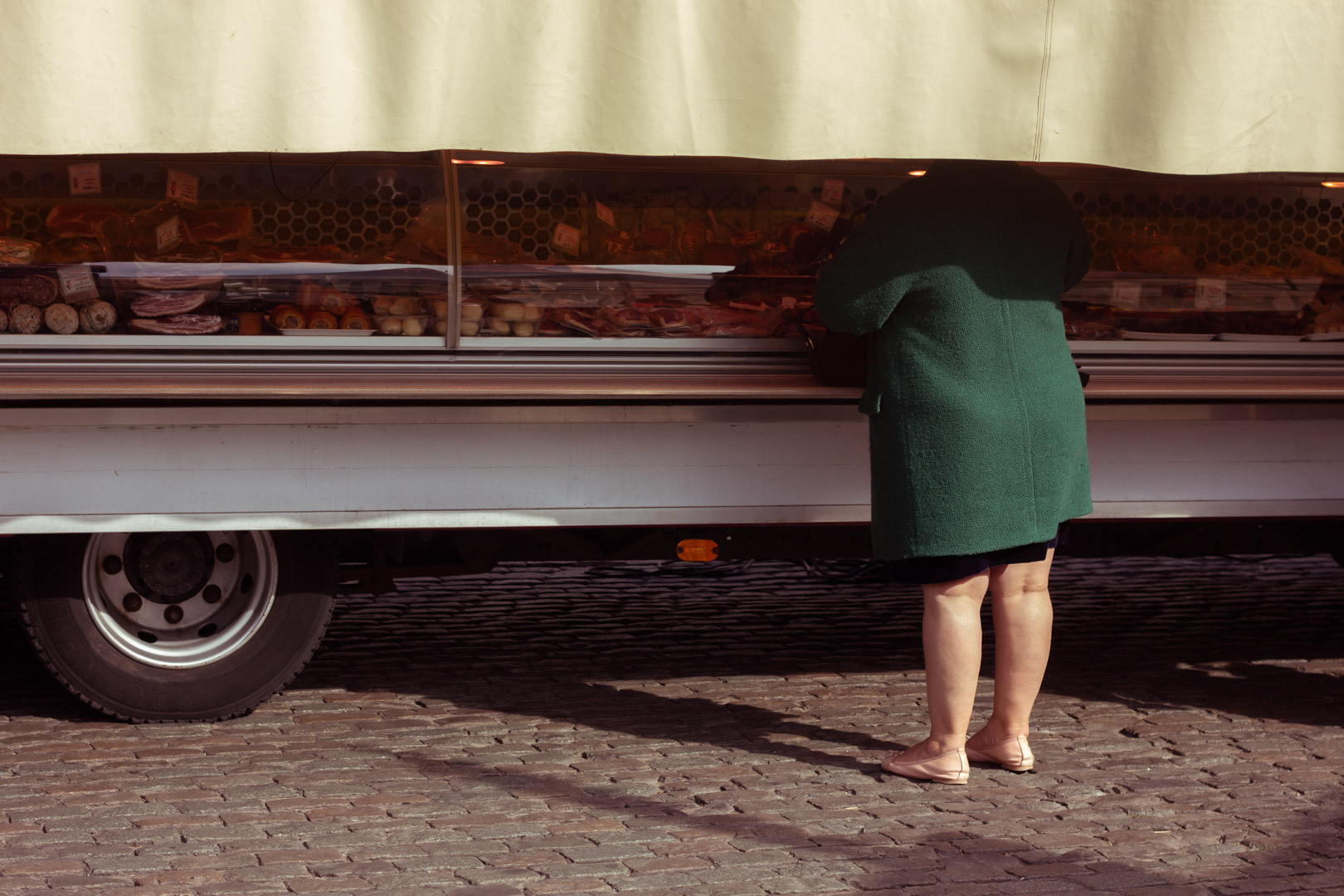
How are you doing other than that?
I spend a lot of time thinking. By nature I am someone who tends to think too much. So right now, I'm torturing myself a lot with thoughts, and it all becomes quite negative. But if not, I spend time working on my website, on my Instagram, I'm trying to speed things up in terms of audience, I work on my portfolio, and so on. I read a lot of books too. Another important area of work that I started was to try to find common threads throughout my photos and categorise them, so that I can eventually do something more with them. Generally speaking, I’d rather do than think. And at the moment I'm a bit stuck and forced to think, so it's a bit negative for me.
What has the lockdown taught you about the way you work, about your photos?
The lockdown has already pushed me to rediscover my neighbourhood. Since mid-March I've limited myself to this area within a radius of 200 meters. I've never thought about it before, and I'm realising that there are a lot of things to photograph. That's what the lockdown has done for me; I have a lot of photos of Jette that I can use. And I will keep going around the neighbourhood again and again.
Has this phase made you want to try out other things?
Yes, I have a few things lined up that I'm going to try out. The idea is to work freelance. I have some contacts in media so I would like to pursue those. I’ve been thinking about documentary photography which I would like to start to develop. Where street photography is concerned, I know I want to continue with the same intensity, but also take the collection of photos I already have and find what to do with them. Hence the work of categorising my photos that I was talking about. Once the galleries are open, I'm going to apply to them exhaustively.
And finally, as I need to make contacts, I'm looking to see if there's a way to join a photography agency. I’m exploring several possibilities, even the idea of leaving my current job to be an intern in an agency.
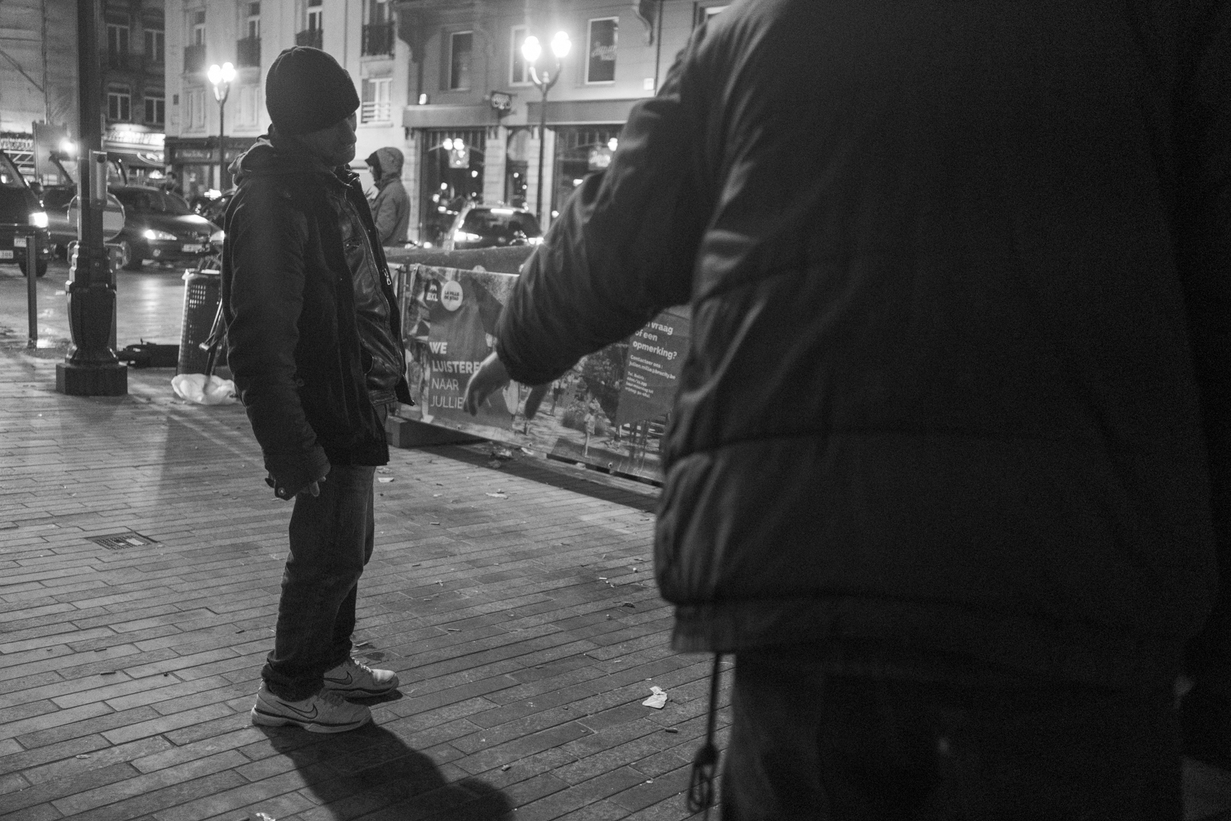
After the lockdown, once there are enough people outside to keep you entertained, where do you most want to go to take photographs?
One of the documentary projects I am working on is the German-speaking community of Belgium. And I realise that it’s hard to plan it without having set foot there, so I’m going to go as soon as I can, to try to get in contact with people. Brussels will remain my favourite playground in any case. But I feel the need to go further, hence the project on German-speaking Belgians. This is the hottest project I have right now!
Follow Mehdi's work on his Instagram page.
Featured photos by Mehdi El Taghdouini
Translated from À Bruxelles, la street photo à l'épreuve du confinement



